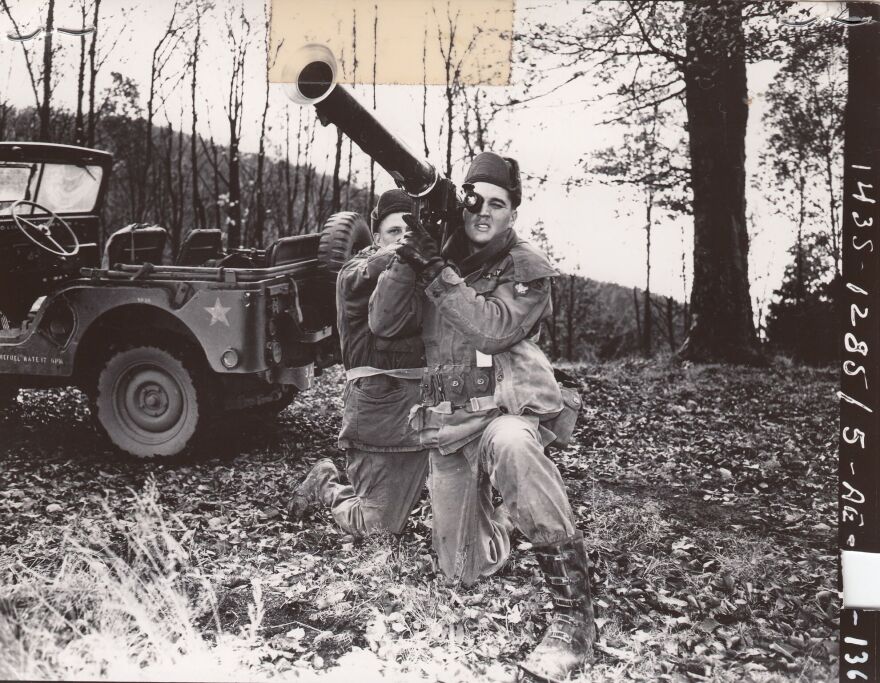It took about 20 seconds to realize that Eugene Jarecki’s The King is a necessary documentary for this moment in our history. You may wonder why it didn’t come along sooner, until you realize how right it is for this exact time, and it’s a great film about the agony America faces now. Jarecki has done good work before this picture, but when I saw both Steven Soderbergh and Errol Morris listed as executive producers, I thought something unusual was coming – and it did.
The overt subject is the career of Elvis Presley, but The King describes the phenomenon of Elvis Presley as a critical event in American history. Back in 1968, in his book Soul on Ice, Black Panther Eldridge Cleaver wrote that Elvis Presley taught the white man how to shake his ass. But that’s just the most obvious thing about Presley. James Carville, the caustic political adviser, says that after Elvis Presley appeared in the world, “America never tasted the same.”
White parents were terrified that Presley’s wildness would do who knows what to their children – those dangerous rhythms and lyrics. They preferred the dependably smooth Pat Boone. The white children knew that their parents’ take on Presley was right – that Presley did offer foreign rhythms from black America, and that he was dangerous. Which is just what they wanted, an antidote to a stiff, uptight, racially and culturally segregated world. But it was all far more complicated than that, and that’s where The King becomes a revelation.
The movie is a furious mélange of film clips, still photos, interviews and music. The past slams against the present. Images from Presley’s life and time join with America now. Presley’s parents were barely working class. His father went to prison for forging a check. As a young man, Presley drove a truck and worked as an electrician. He was not yet musical, but he listened to black radio stations and went to a black church where a few other whites attended, largely to hear the music. Director Eugene Jarecki brings the film to the Stax Music Academy in Memphis, where children now learn soul music – and so they sing and are stunningly good. But so is EmiSunshine, a 13-year old white girl who belts out a white version of blues and gospel.
Nothing in the film goes unchallenged. There’s the standard story of Sam Phillips of Sun Records who first recorded Presley because he had been looking for a white singer with a black sound. Then the film brings in Van Jones, a scholarly former adviser to Barack Obama who talks about how for black people, Presley was a thief who stole black culture for white exploitation. But then Chuck D of Public Enemy says that culture is culture, open to everyone. And then, there’s the late blues singer Big Mama Thornton singing “Hound Dog,” Presley’s great early hit, which he got from Thornton, who in turn got it from Jerry Lieber and Mike Stoller, the two white, non-Southern Jewish song writers fundamental to rhythm and blues and rock ‘n’ roll.
But The King doesn’t stop with cultural complexities. The film is really searching for the basic structure of American society. Its politics and social view are about the contentious state of America right now. So, it looks at what went wrong with Presley – destructive celebrity, wealth and the malevolent influence of Col. Tom Parker, Presley’s overbearing manager – who, the film notes, took 50 percent of Presley’s earnings instead of the typical 15 percent.
A telling film clip shows Presley just back from the army, welcomed on a TV show by Frank Sinatra, Dean Martin and Sammy Davis, Jr. – the “rat pack.” You can see that at that moment, Presley’s time as a man who changed the direction of the world was over. He was sucked into the fold, and no matter how rich, drug addled and unhappy he would get, the corporate world had got him and neutered him.






